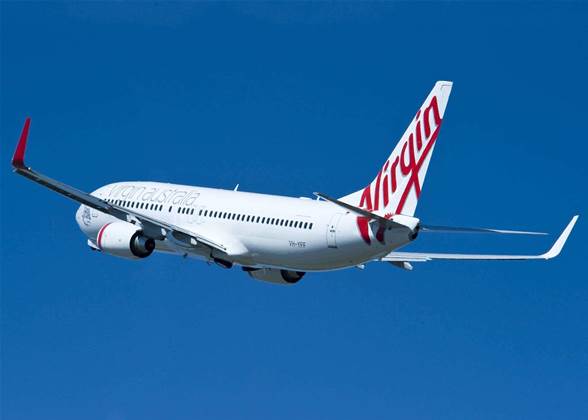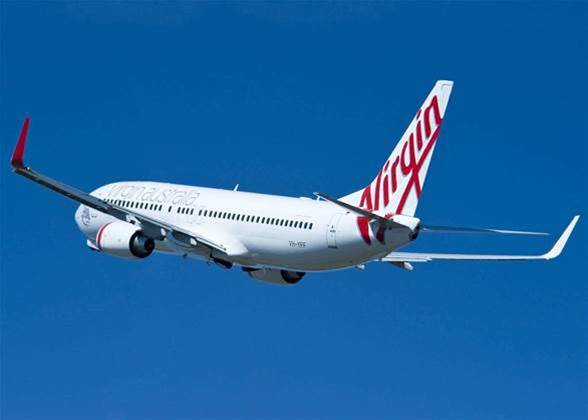
Virgin Australia has joined Flight Centre and Qantas in a race to capitalise on emerging platforms that enable airlines and travel agents to share user data and sell customised offers over indirect channels.

The adoption of an XML-based data exchange standard for airlines and travel agents is expanding capabilities that were previously confined to airlines’ direct sales channels to more third-party platforms.
Virgin’s flights and ancillary services like inflight wi-fi will be sold via the ‘New Distribution Capability’ (NDC).
The travel industry’s older model for booking and reserving products like flights, hotels and rental cars – the Global Distribution System (GDS) – cannot price products or update luggage and seating arrangements in real time.
GDS’s data exchange standard – the Electronic Data Interchange for Administration, Commerce, and Transport (EDIACT) – was set up in the 1980s; it has limited ability to tailor marketing content or share user information like frequent flyer points.
Travel product sellers cannot use EDIACT to transmit the rich data about customers’ behaviour and preferences collected through direct ticket purchases over airlines’ sites.
Virgin has tapped its long-term GDS provider Sabre to power its embrace of NDC.
Virgin’s chief commercial officer Dave Emerson said in a statement that it “was vital to us that we chose the right, future-focused technology partner to enable us to create tailored, customised offers in real-time, and position those offers in the right distribution channels at the right time, to the right travellers.”
Virgin also uses Sabre solutions that it purchased in March and September to continuously set the cost of airfares and ancillary offers to prices expected to generate the highest return.
These pricing decisions are informed by real-time data Sabre provides about different air travel products’ supply and demand and market predictions that Sabres makes with machine learning.
Race for new marketplace
Virgin Australia joins other travel industry giants that have soared ahead in embracing NDC.
Qantas started building its NDC-based ‘Qantas Distribution Platform’ in 2018, which has been integrated with several travel content distributors like Amadeus and Serko.
Flight Centre spent $39 million on bringing its shareholding of NDC provider TP Connect to 70 percent in 2022.
“[Flight Centre] have acquired significant software through the next generation New Distribution Capability”, the company’s 2022-23 financial year report [pdf] reads.
“TP Connect is a Dubai-based, technology provider and travel aggregator, helping airlines and travel agencies to retail travel through cloud-based software designed to streamline and personalise the distribution of travel products.”
Bain Capital – which bought Virgin out of voluntary administration in 2020 – cannot afford to let Flight Plan and Qantas dominate indirect sales channels as the private equity firm prepares to relist Virgin on the ASX next year.
Industry backlash
The NDC standard has gained momentum since it was published in 2015, but its creator and chief advocate – the International Air Transport Association (IATA) – has also faced resistance to its regime change.
One of IATA’s reports [pdf] attempts to quell concerns that because NDC has higher “look-to-book ratios” than GDS, could require “enhanced computing capacities” and have “unacceptable costs and response times.”
“Since the inception of the NDC standard, the industry has questioned the ability of all the players – airlines, airline IT vendors, aggregators, Meta Search Engines (MSEs) and Online Travel Agents (OTAs) – to handle the high volumes of transaction queries for leisure traffic and the impact this could have on the customer experience.”
IATA argued the consequences of higher look-to-book ratios could be mitigated by “providing relevant and consistent information to the traveller at the right time,” as well as by “filtering out robots and limiting the deployment of result-based caches.”
Sections of the travel agent industry have also opposed NDC because of re-platforming costs and loss of revenue from partnerships with GDS providers.
The Australian Federation of Travel Agents (AFTA) said in January [pdf] that airlines’ use of NDCs is “forcing travel agents to access proprietary systems to maintain access to the lowest fares.”
In response to Qantas and Emirates’ application for a shared services agreement, AFTA recommended the condition that “they will make all fare types and schedules made possible by the Proposed Conduct available to travel agents through all distribution avenues – not only the New Distribution Capability.”
“With the plan to introduce Qantas’ own NDC called the Qantas Distribution Platform (QDP), Qantas started paying GDS operators less for their hosting services,” AFTA said in the submission to the Australian Competition and Consumer Commission.
“This resulted in the removal of the traditional GDS segment rebates these operators would pay to agents to support Australian consumers.
“At the same time, Qantas introduced a $17.50 channel fee for agents that did not participate in the new model.
“The channel fee was not applied to tickets issued through Qantas’ direct booking channels or tickets issued using the QDP.
“However, as QDP did not go live until November 2022, the airline’s dominant market position allowed them to effectively reduce the costs of their commissions for the three-year interim and divert more sales into their direct channel without any consumer benefit.”









